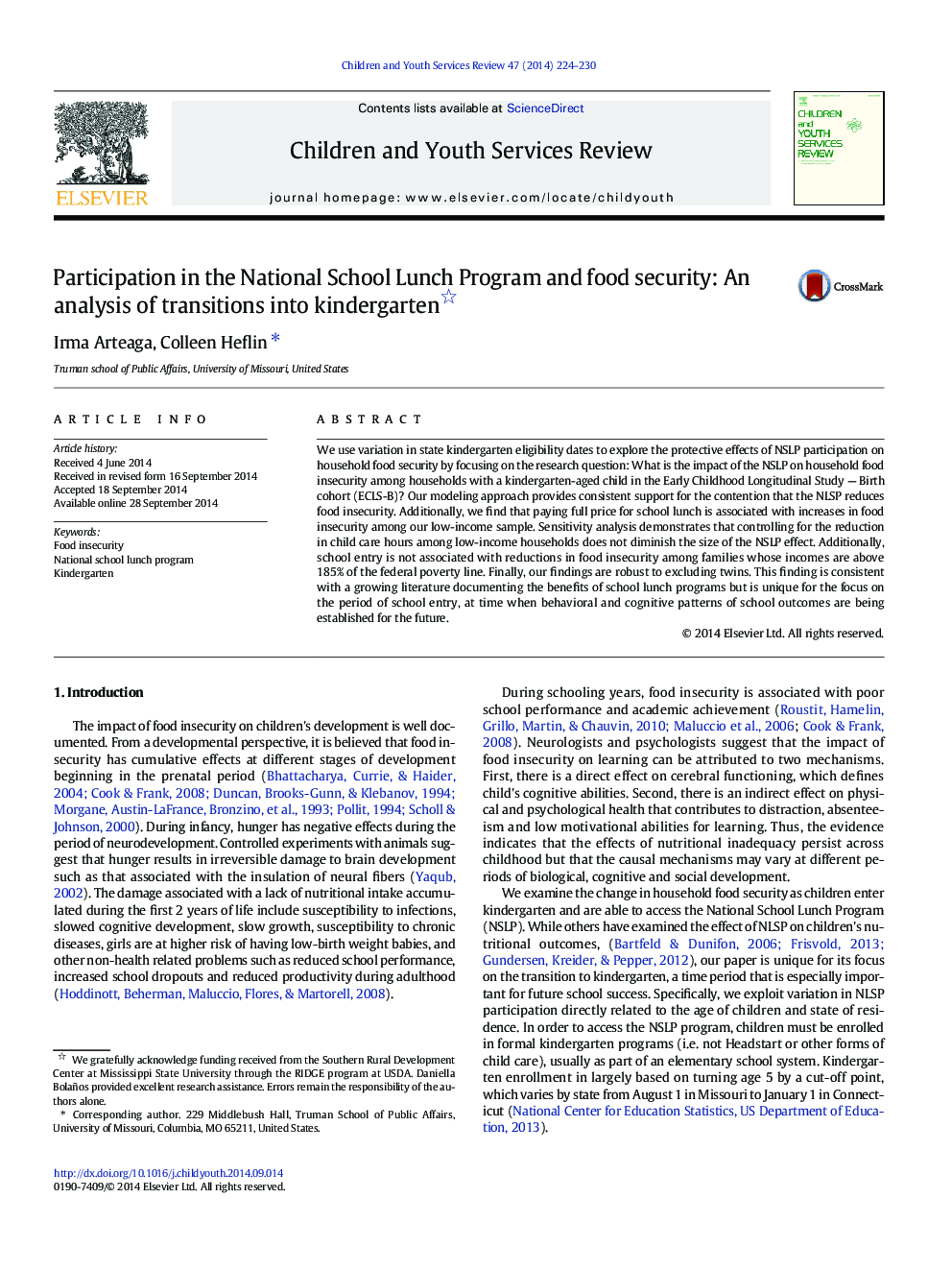| Article ID | Journal | Published Year | Pages | File Type |
|---|---|---|---|---|
| 10311526 | Children and Youth Services Review | 2014 | 7 Pages |
Abstract
We use variation in state kindergarten eligibility dates to explore the protective effects of NSLP participation on household food security by focusing on the research question: What is the impact of the NSLP on household food insecurity among households with a kindergarten-aged child in the Early Childhood Longitudinal Study - Birth cohort (ECLS-B)? Our modeling approach provides consistent support for the contention that the NLSP reduces food insecurity. Additionally, we find that paying full price for school lunch is associated with increases in food insecurity among our low-income sample. Sensitivity analysis demonstrates that controlling for the reduction in child care hours among low-income households does not diminish the size of the NSLP effect. Additionally, school entry is not associated with reductions in food insecurity among families whose incomes are above 185% of the federal poverty line. Finally, our findings are robust to excluding twins. This finding is consistent with a growing literature documenting the benefits of school lunch programs but is unique for the focus on the period of school entry, at time when behavioral and cognitive patterns of school outcomes are being established for the future.
Related Topics
Health Sciences
Medicine and Dentistry
Perinatology, Pediatrics and Child Health
Authors
Irma Arteaga, Colleen Heflin,
